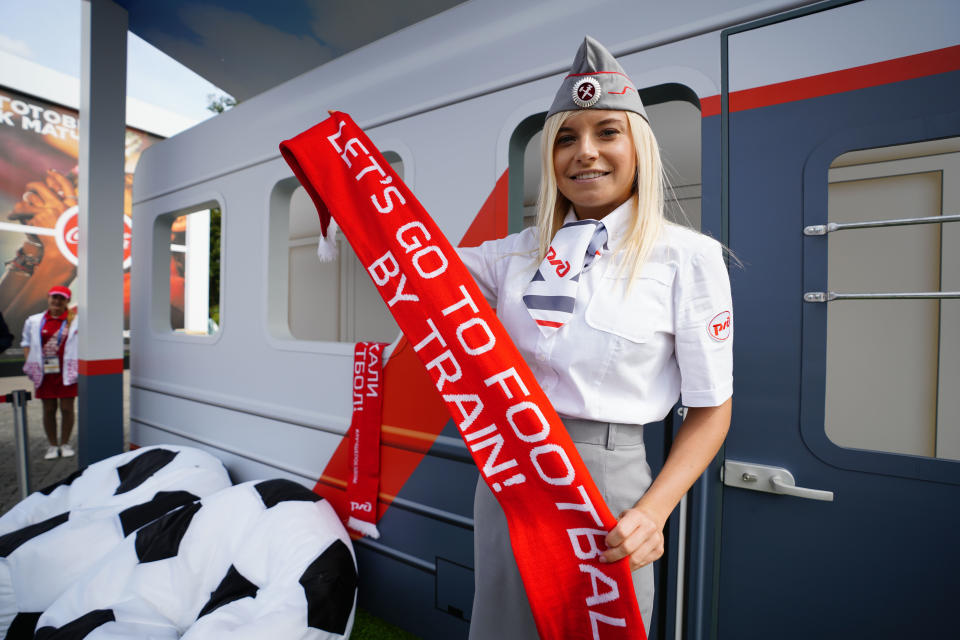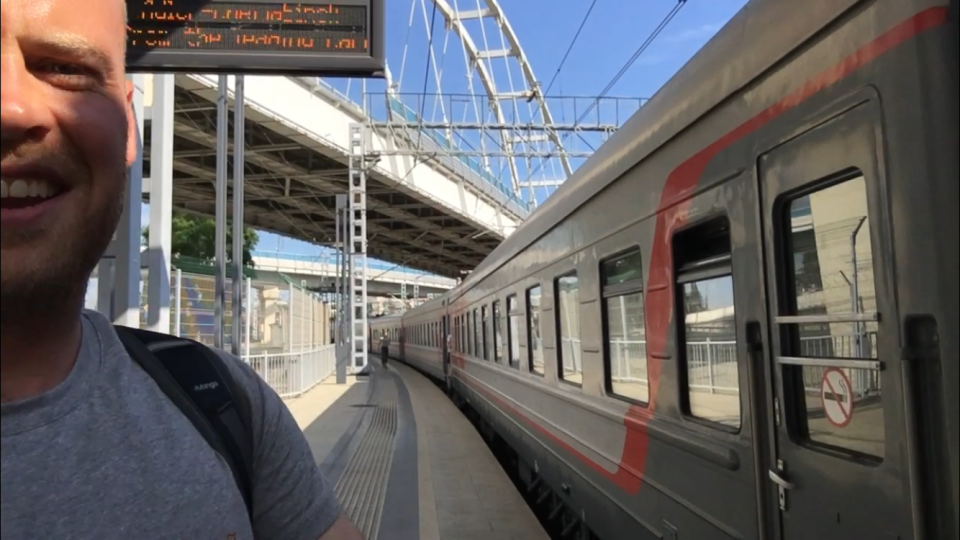World Cup Diary - Day Seven: Train travel Russian style

Sochi, well Adler, it has been emotional. I know I have peaked to soon, in terms of the action on the pitch – the Iberian extravaganza – and the subtropical climate. It is time to hit the real Russian cities and, most likely, lower scoring games.
After a quick jaunt into town to buy another local SIM card, it was off to the most elaborate of railway stations I have seen for some time.
Of course, it was built for the 2014 Winter Olympics, like everything else in Adler, and of course it is completely unnecessarily huge. The station itself only has nine platforms, all on one level. What is going on in the other 20 or so stories towering above one can only wonder.
READ MORE: What Senegal & Japan fans did at the World Cup was amazing
Those who have had to endure two-carriage trains on Northern Rail’s busy routes, or crammed onto a sweltering Thameslink train could only marvel at the length of Russian trains.
30 plus carriages, half full, it is impossible to see either end, or know which way you are facing.
This is my first experience of Russian long haul transportation in many years. The 16-hour train to Rostov-on-Don, in a fourth-berth cabin, was never going to be the most comfortable ride of my life, but with a bed that didn’t look uncomfortable at my disposal, it could have been worse.
There was not a single fan joining me on the trip. Sochi is so isolated from the rest of the host cities in the south that once you are in Sochi, you stay there for the tournament, or you fly out, but not me! I actually enjoy these kinds of journeys, as you meet all walks of life and learn so much from simply having a conversation.
READ MORE: Gossip – Sarri demands World Cup star as first signing and more
The problem with that somewhat utopian ideology, though, is that there has to be at least some common language spoken. While English may be widely spoken in Moscow or Saint Petersburg, it is not so down here, and after a few attempts to strike up some form of dialogue, we gave up on our cabin.
Instead, we bonded over food. Russian people bring their own food with them for long trains journeys, so I delved into a lovely spread of blackcurrant buns, ginger-snap biscuits and peanuts, washed down with some Fanta.
Then it was just smiles and laughs, with the only words from my phrasebook. My pronunciation had my cabin companions rolling around laughing. Yuri kept buying me tea, which lead to toilet breaks throughout the night.
The problem was, I soon realised that the train was going to take longer than 16 hours, which seemed unimaginable to me. Russian trains are so excruciatingly slow. They stop for long periods, far too often. One stop, around 10pm lasted for over an hour.
I put my journalism cap and, via Google translate, asked one of the conductors why we were delayed for so long. The response was: “we always wait there, always.” Great, thanks for clearing that up.



Nonetheless, a surprisingly decent night’s sleep was had and we arrived in Rostov, traditionally home to Russia’s Cossack communities. Much of their traditions live on in the city.
This football-mad city, home to FC Rostov, who have had some famous Champions League nights in recent years including when they beat Bayern Munich, is one of the smaller host cities, and is famous for its hospitality. Let’s put that to the test as we head to game number three: Uruguay v Saudi Arabia.

 Yahoo Sport
Yahoo Sport 







































